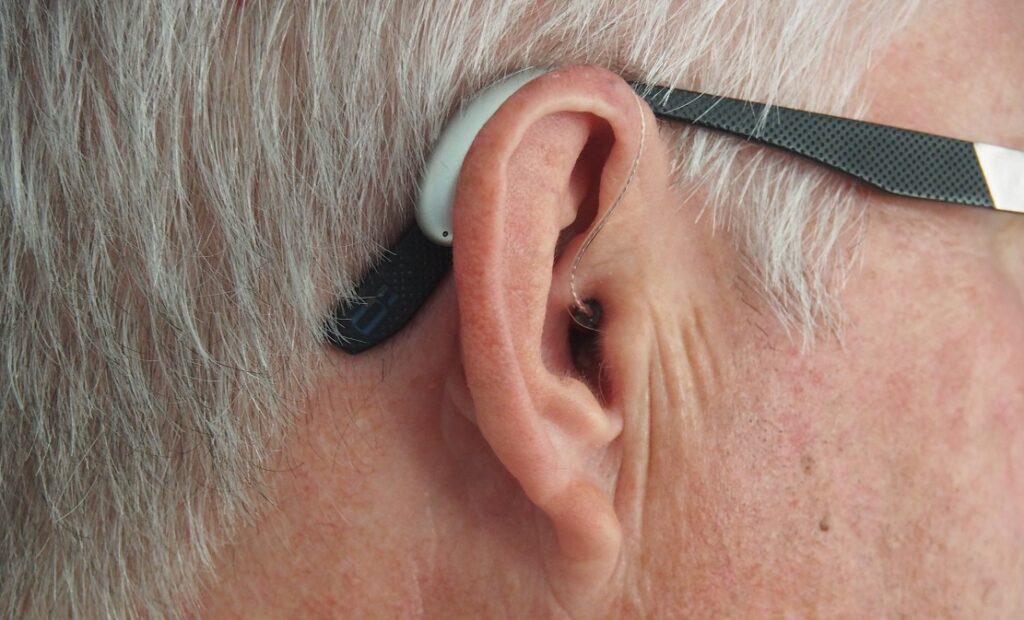

I was in my late 40s when I realized that “What?” was becoming an increasingly common word in my vocabulary. My family teased me about it, and I became more and more self-conscious and frustrated. I did a bit of research and realized that I had several of the common signs and symptoms of hearing loss:
- Muffling of speech and other sounds
- Difficulty understanding words when there was background noise
- Trouble hearing consonants
I became concerned enough about my situation that I decided to see an Otolaryngologist to get my ears checked and hearing tested. I was ready and willing to set my vanity aside and get hearing aids if that would help me hear better.
I was checked for possible earwax build up, I completed a hearing test, and the doctor examined my ears. The diagnosis was maddening. I was told that while the high-frequency range in one ear showed very minor hearing loss, overall, my hearing was still considered to be “within normal limits”. The doctor acknowledged that it is possible I had lost considerable hearing relative to what I may have had before, but that my hearing was not yet impaired enough to recommend the use of hearing aids. And, he explained that consonant sounds are in the high-frequency range which explained my difficulty hearing the end of words. At least now I had an understanding of my issue and a baseline test to compare to in the future.
I have learned that gradual hearing loss is very common as you age. According to the Mayo Clinic, about one-third of people in the United States between the ages of 65 and 75 have some degree of hearing loss. For those older than 75, that number is approximately 50%. And the impact of hearing loss can be significant on a person’s involvement in conversations and social activities. In fact, a study by the National Council on Aging, found that seniors with untreated hearing loss are considerably less likely to participate in social activities and risk suffering from the negative effects of social isolation, loneliness, and depression because of their hearing impairment.
So what can you do?
- Have your ears checked – First and foremost, if you think you are struggling with possible hearing loss, see a hearing professional to have your ears tested and checked for earwax buildup.
- Be honest about your hearing loss – Acknowledge your hearing loss, and make sure your loved ones understand that you need their help. The next time my son teased me about my hearing loss after my hearing test, I acknowledged my hearing loss and reminded him that while I can’t listen any harder, he could help me by talking more loudly and clearly enunciating his consonants.
- Be thoughtful around others with hearing loss – If you are in a social situation and see someone withdrawn from conversation, consider if perhaps they are having a hard time hearing. Adjust your own volume and enunciation and consider helping that person engage more actively in the conversation by making sure they are hearing and following the conversation.
For years, my husband Jon intentionally positioned himself next to one of our hard of hearing senior friends during social situations so that he could engage him in conversation and fill in the blanks around group conversations that were difficult for him to hear on his own. Jon was very subtle in the support he provided, and our friend was very thankful. I am grateful that Jon is practiced in this technique since now he serves as my “human hearing aid” in social situations.
When the day comes that electronic hearing aids are appropriate for me, I plan to get them. And, I will continue to use my human and electronic hearing aids for as long as necessary so that I can remain actively engaged in the conversations of life!
Darra Wray is a Care Consultant and Certified Senior Advisor with My Care Companions in Boise, Idaho, a company she founded to streamline and simplify the administrative side of care. You can learn more about My Care Companions and the My Data Diary+ family information management software tool at www.mycarecompanions.com.
